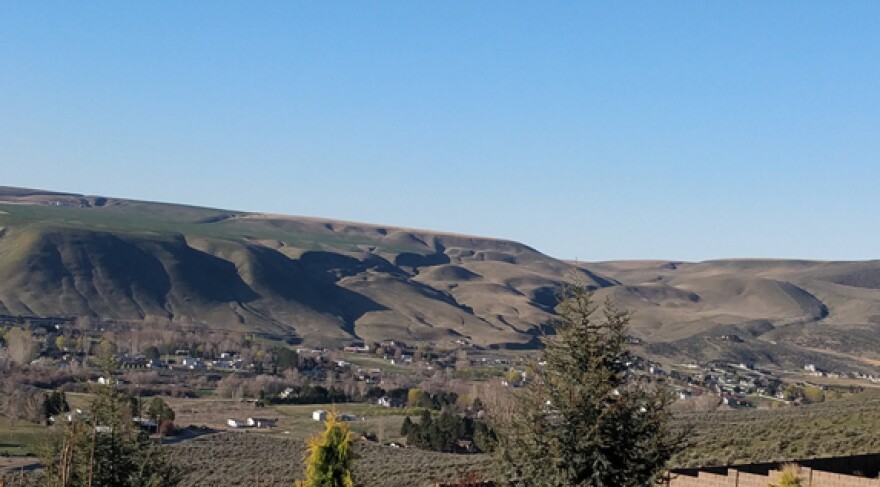Listen
(Runtime 1:01)
Read
CORRECTION 11/19/24: An earlier version of this story misstated when the lawsuit will be filed. It will be filed before the Dec. 2 deadline. We regret the error.
A controversial renewable energy project near the Tri-Cities will face a lawsuit from locals. People who would live nearby are hoping to scale it back.
The Horse Heaven Clean Energy Center would be the largest wind farm in Washington. The project would also include solar arrays and battery storage. The project would stretch along roughly 24 miles of ridgelines.
Tri-Cities C.A.R.E.S., which stands for Community Action for Responsible Environmental Stewardship, has advocated against the project.
The nonprofit argued it would harm views, reduce property values, negatively impact the local economy and make it much more difficult to fight regular wildfires in the area.
The Washington State Energy Facility Site Evaluation Council was tasked with overseeing recommendations for the project. Originally, council members wanted to drastically reduce the size of the project. They said that would help wildlife, traditional cultural properties and views.
But Washington Gov. Jay Inslee directed the council to keep the project as close to full-size as possible.
“We must come to grips with the fact that we will need to adapt and accept relatively moderate changes to our physical landscape in order to ensure continued, reliable electricity service,” Inslee wrote in a May letter to EFSEC.
The council followed his recommendations, and Inslee approved the larger-scaled Horse Heaven Clean Energy Center on Oct. 18.
Now, Tri-Cities C.A.R.E.S. plans to challenge Inslee’s decision in Thurston County Superior Court. The governor’s office said it's too soon to comment on litigation.
“I live here. Right down the block from my house, I will go from seeing five turbines to seeing 30 turbines,” said Paul Krupin, a board member of Tri-Cities C.A.R.E.S. “When you realize how many thousands of people will be affected and what that does, the impact that has: This is going to be a major change. It's worth fighting for.”
At its current size, wind turbines would clutter views, Krupin said, which could drastically reduce property values.
“It's not rocket science,” Krupin said. “Nationwide, people pay for scenery. They love to buy property near parks and with views of nature and forests and scenery. They basically avoid and will pay less for views of anything that has energy industrial hallmarks: power lines, substations.”
Property appraisal experts hired by Tri-Cities C.A.R.E.S. estimate the project could reduce some of the Tri-Cities’ higher-end property values by 10% to 30%, Krupin said.
Prior wind projects in Washington have been thwarted after people raised concerns about potential for visual impacts. The Whistling Ridge Energy Project would have bordered the Columbia River Gorge National Scenic Area in Skamania County. Permits for the project expired after lawsuits and over viewsheds, setting a precedent, Krupin said.
In addition, he said, the Horse Heaven Clean Energy Center turbines could make it very difficult for aerial firefighters to spray fire retardant or water. Over a 30 year history, he said, parts of the area have burned about every few years.
The cliffside terrain is steep, making it difficult for on-the-ground firefighting. Often, aerial firefighting drops retardant or water.
“When they drop the fire retardant, they're 150 feet off the ground,” he said, referencing a YouTube video of a June 2023 wildfire. “Then, they've got to bank away. The distance to the turbine in front of them, the nearest obstacle that they have to avoid in order to avoid a crash, (is too close),” Krupin said.
The lawsuit could take more than a year to reach a final decision, he said. Tri-Cities C.A.R.E.S. hopes the project will go back to its more stringent restrictions that reduce the number of turbines and solar arrays to mitigate for views, wildlife and tribal cultural properties.
Benton County Commissioners and the Yakama Nation are still considering similar lawsuits. The commissioners plan to discuss a potential lawsuit during an executive session Tuesday. Both groups have until Dec. 2 to also challenge the project’s approval.

